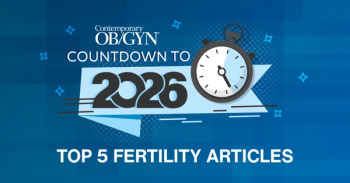
IVF and fresh embryo transfer for women with adenomyosis
The authors noted that although adenomyosis is common among infertile women, it is unclear whether the condition has a detrimental effect on in vitro fertilization and embryo transfer (IVF-ET) results.
A large, retrospective cohort study published in Frontiers in Endocrinology concluded that infertile women with adenomyosis have adverse fertility outcomes, especially an increase likelihood of miscarriage and obstetric complications from assisted reproductive technology (ART) treatment.
The authors noted that although adenomyosis is common among infertile women, it is unclear whether the condition has a detrimental effect on in vitro fertilization and embryo transfer (IVF-ET) results.
The study was conducted at Peking University Third Hospital’s Reproductive Centre, in China, where the investigators assessed the medical records of all women who had their first cycle of IVF/intracytoplasmic sperm injection (ICSI) treatment between January 2011 and December 2020.
Patients were identified via the hospital’s online record system. The three inclusion criteria were women with adenomyosis, aged 40 years or younger at the time they began IVF/ICSI treatment; women diagnosed by at least two experienced sonographers and indicating a uterine volume of ≥ 56 cm3; and women with freshly stimulated and day 3 cleavage-stage transfer cycles and tubal factor infertility screened by hysterosalpingography or laparoscopy.
The study enrolled 1,146 patients with adenomyosis and 1,146 frequency-matched control women in a 1:1 ratio, based on age, body mass index (BMI) and basal follicle-stimulating hormone (FSH) level.
The control group had a normal uterus and received IVF treatment for tubal factor infertility, but otherwise met the same selection criteria.
There was no significant difference in clinical pregnancy rate between the two groups: 38.1% for women with adenomyosis and 41.6% for controls (P = 0.088).
However, the implantation rate and live birth rate were significantly lower in women with adenomyosis than in the controls: 25.6% vs. 28.6% (P = 0.027) and 26% vs. 31.5% (P = 0.004), respectively.
The miscarriage rate in the adenomyosis group was also higher than in the control group: 29.1% vs. 17.2% (P = 0.001).
But after adjusting for confounding factors, multivariate analysis showed the clinical pregnancy rate was not statistically different between the two groups: odds ratio (OR) = 0.852 (P = 0.070).
Still, in the adenomyosis group, the rate of miscarriage, placenta previa and preeclampsia were increased significantly compared to the control group: OR = 1.877 (P = 0.000), OR = 2.996 (P = 0.042) and OR = 2.287 (P =0.042), respectively.
Conversely, the live birth rate among women with adenomyosis was reduced significantly in contrast to the control group: OR = 0.541 (P = 0.000).
Two feasible mechanisms for increased miscarriage risk in adenomyosis are that disruptions at the endometrial–myometrium interaction influence endometrial features and that inflammatory responses and inordinate free radical formation can lead to abnormal implantation and miscarriage, according to the authors.
“Alterations in the inner myometrium in women with adenomyosis may be at the root of faulty reshaping of the myometrial spiral arteries from the initiation of decidualization, resulting in vascular resistance and an increased risk of defective deep placentation,” wrote the authors.
The study offers comprehensive insight into the adverse effect of adenomyosis on IVF-ET outcomes and obstetric complications, thus underscoring the importance of full consultation and active use of ART for women with adenomyosis.
Clinical and basic studies are also needed to develop more effective treatments for adenomyosis and improve outcomes.
__
Reference
Liang T, Zhang W, Pan N, et al. Reproductive outcomes of in vitro fertilization and fresh embryo transfer in infertile women with adenomyosis: a retrospective cohort study.
Newsletter
Get the latest clinical updates, case studies, and expert commentary in obstetric and gynecologic care. Sign up now to stay informed.









